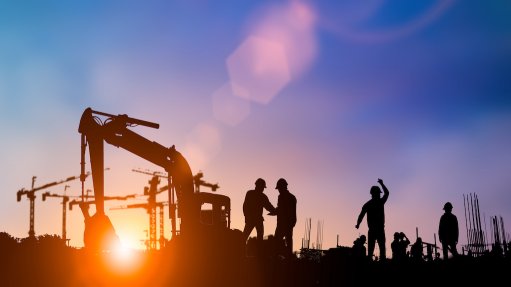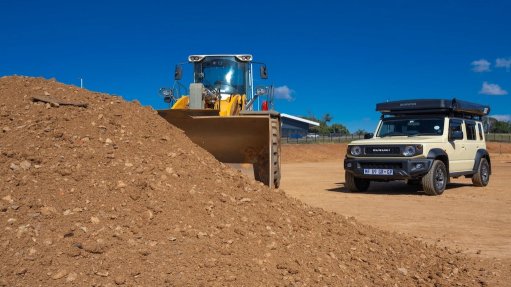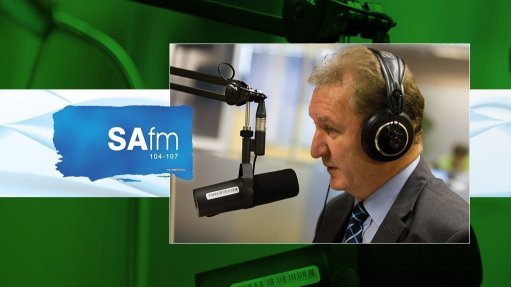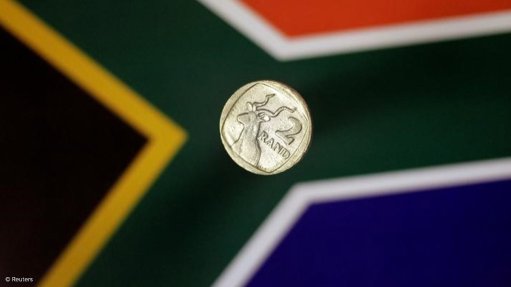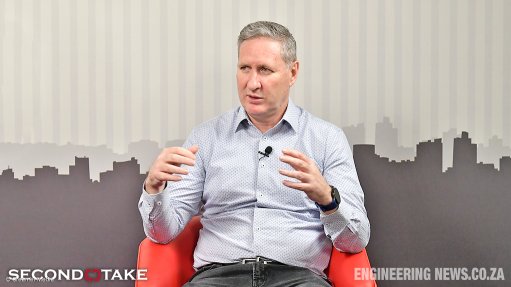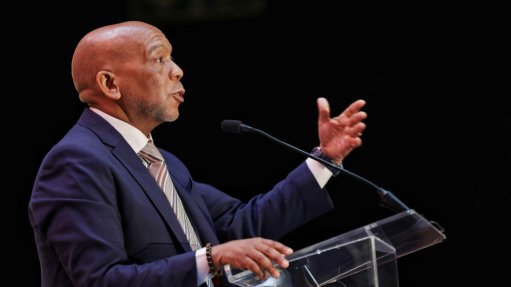Solidarity Fund continues to make progress in supporting fight against Covid-19
Four months since the first case of Covid-19 was identified in the country, the Solidarity Fund, established by President Cyril Ramaphosa as a rapid response to augment the fight against the pandemic, has made considerable progress in implementing its mandate and distributing funds, it said during a July 17 webinar.
Solidarity Fund interim CEO Nomkhita Nqweni acclaimed that the fund had continued to have a measurable impact across its key areas of work, including its healthcare relief efforts; and the important area of social solidarity.
For the former, she noted that the fund had played a catalytic role in responding to the immediate impact on the country’s healthcare system, by providing personal protective equipment (PPE) and critical medical equipment to healthcare and community workers.
She said the fund had also expanded the country’s testing capacity.
Moreover, the fund had distributed tens of thousands of food parcels to those most affected by the measures implemented to help contain the spread of the pandemic, she indicated.
For the latter, she noted that the fund had instituted behavioural change campaigns to continue to spread the messages of the importance of hand washing, protecting neighbours and friends, wearing face masks and maintaining physical distancing, as important measures to prevent the spread of Covid-19.
The fund had also partnered with various organisations and networks to amplify behavioural change campaigns to ensure maximum reach, she said.
One example is the return to work platform, developed to provide guidelines and resources for workplaces to reopen safely during the pandemic.
Moreover, she noted that the fund continued to work and partner with civil society to ensure community adherence to preventive measures.
Further, as part of the behavioural change campaigns, on Nelson Mandela International Day (July 18,) a 3TCricket match will be played, whereby three teams of eight will play in a single match, competing for the inaugural Solidarity Cup.
This match will be the first sports match in the country to be broadcast live since South Africa went into lockdown at the end of March, Nqweni indicated, adding that it would be in support of the message that behavioural changes can help curb the spread of Covid-19, and ultimately, reduce strain on the country’s healthcare system.
She emphasised that the match would observe all the necessary health protocols, and would serve as an opportunity to remind South Africans of the unifying nature of sport.
Nqweni said that through corporate, civil and government support, the fund had been able to move into the next phase of intervention, that of the health response.
To date, she said the fund had received R3-billion in pledges, and almost this full amount had already been converted and deposited into bank accounts thanks to South Africans’ commitment and generosity.
She indicated that more than 298 000 individuals had donated through various platforms, as well as more than 2 000 corporates.
To date, she noted that the fund had fully allocated more than R2.2-billion to fund initiatives that aim to help with the recovery, care and support for those affected by the pandemic.
She said R1.9-billion had been earmarked for the health response.
Solidarity Fund Recovery and Health response lead Dr Jonathan Bloomberg provided more insight into the fund’s health response efforts.
He said that the impact of the pandemic was now fully on the country; with the peak perhaps passed in the Western Cape; but still expected to occur in other provinces, such as Gauteng and the Eastern Cape.
From the onset, he noted that the fund had focused on care, detection and post-infection support.
In terms of care, at the outset, when the country went into the Level 5 lockdown, the fund had intervened by focusing on sourcing adequate PPE specifically for health and community workers, with the bulk timeously received and much already distributed to provinces; and ordering 200 ventilators, which are on the way to the country, he said.
Moreover, medical schools requested support for health students who would be returning to wards, and the fund provided medical masks for medical school in the country, he said.
The next phase focused largely on the country’s public hospital system, as modelling showed that the rising number of infections would place an increasing burden on general and critical care beds.
Bloomberg said the fund was working with the Department of Health and provinces to understand their needs and demands, and how it could help.
Recently, R405-million of funding was approved by the fund for the sourcing of required medical equipment for hotspots such as Gauteng and the Eastern Cape.
Bloomberg noted that before the pandemic, the country imported about 92% of all medical equipment, including PPE.
Therefore, part of its focus is to leave a legacy when the pandemic is gone; and, in this vein, it has started investing in local manufacturing of medical equipment, while ensuring the response remains timely and demands are met.
R250-million has been invested in the manufacture of non-invasive ventilators, with the majority to be produced by the CSIR, and the rest by various consortiums, he noted. With production already under way, it is hoped that some will soon start arriving on the frontlines.
In terms of detection, the fund has provided financial support to support national lab efforts for testing for Covid-19, to scale up and capacitate these.
It has also provided a grant of R26-million to support a network of community pharmacies and general practitioners across the country for healthcare workers and community workers to get tested, with a rapid turnaround required here.
Comments
Press Office
Announcements
What's On
Subscribe to improve your user experience...
Option 1 (equivalent of R125 a month):
Receive a weekly copy of Creamer Media's Engineering News & Mining Weekly magazine
(print copy for those in South Africa and e-magazine for those outside of South Africa)
Receive daily email newsletters
Access to full search results
Access archive of magazine back copies
Access to Projects in Progress
Access to ONE Research Report of your choice in PDF format
Option 2 (equivalent of R375 a month):
All benefits from Option 1
PLUS
Access to Creamer Media's Research Channel Africa for ALL Research Reports, in PDF format, on various industrial and mining sectors
including Electricity; Water; Energy Transition; Hydrogen; Roads, Rail and Ports; Coal; Gold; Platinum; Battery Metals; etc.
Already a subscriber?
Forgotten your password?
Receive weekly copy of Creamer Media's Engineering News & Mining Weekly magazine (print copy for those in South Africa and e-magazine for those outside of South Africa)
➕
Recieve daily email newsletters
➕
Access to full search results
➕
Access archive of magazine back copies
➕
Access to Projects in Progress
➕
Access to ONE Research Report of your choice in PDF format
RESEARCH CHANNEL AFRICA
R4500 (equivalent of R375 a month)
SUBSCRIBEAll benefits from Option 1
➕
Access to Creamer Media's Research Channel Africa for ALL Research Reports on various industrial and mining sectors, in PDF format, including on:
Electricity
➕
Water
➕
Energy Transition
➕
Hydrogen
➕
Roads, Rail and Ports
➕
Coal
➕
Gold
➕
Platinum
➕
Battery Metals
➕
etc.
Receive all benefits from Option 1 or Option 2 delivered to numerous people at your company
➕
Multiple User names and Passwords for simultaneous log-ins
➕
Intranet integration access to all in your organisation






